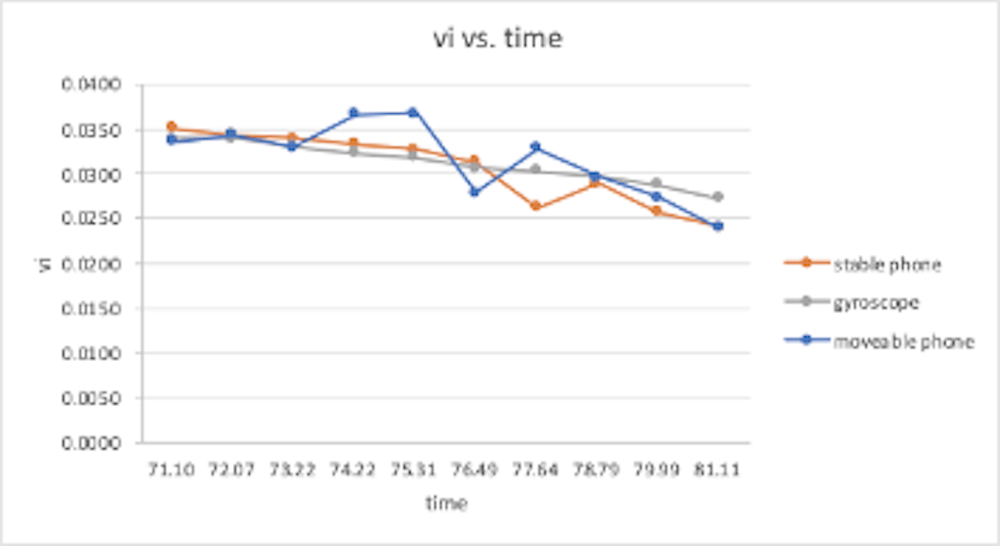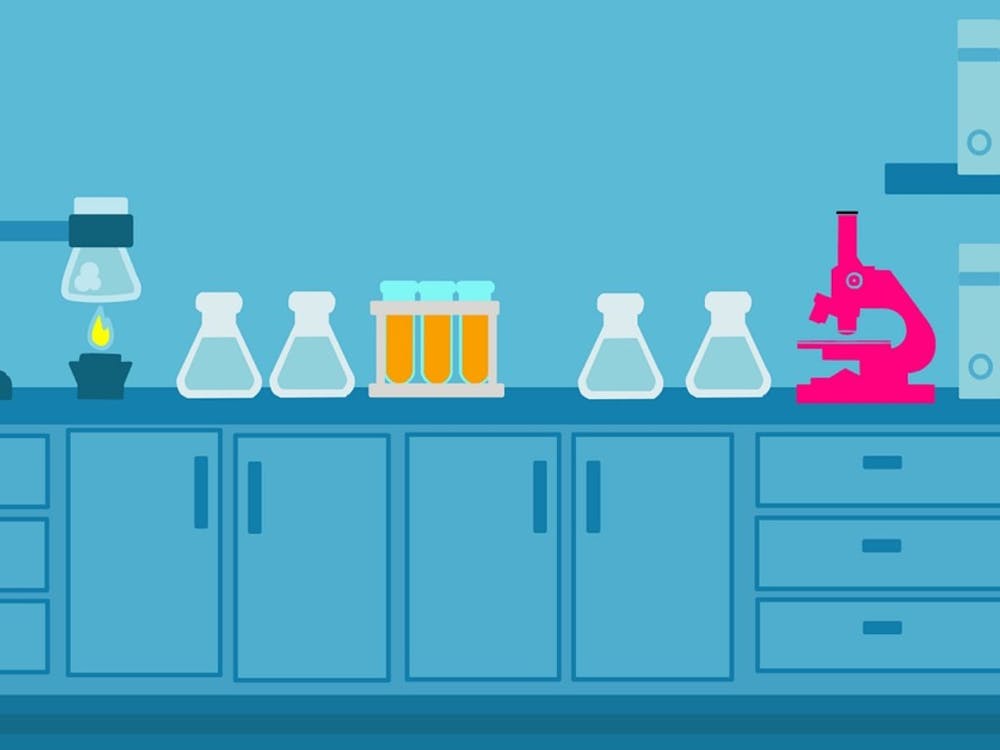Undergraduate students at Duke Kunshan University in China are contributing written and multimedia content to The Chronicle to be published every other Friday.
How do you calculate the speed of sound in your bedroom? How do you measure your mental rotation skills with your computer? Can you identify genetic traits at home?
After the onset of the COVID-19 outbreak, when Duke Kunshan University transitioned to online classes, many science labs continued in an online format. As different courses took different approaches to remote work, the university’s students and departments learned what works best online.
For students in DKU’s Integrated Science-Physics lab, phones became sensors and labs moved online with little difficulty. The Phyphox app was used to conduct experiments, which were fully suitable to be carried out in a non-lab environment, according to sophomore Zijun Xie.
Even away from campus, students were able to measure velocity and amplitude in relation to the length of a pendulum and viscous and dry damping, Xie said. In the school labs, students have a special machine that helps to release both pendulums simultaneously, but at home, they had to perform it with their hands, which she thought might result in milliseconds of lag time.

The relationship between time and amplitude in oscillation drawing.
The other experiment students conducted involved calculating the speed of sound using an acoustic stopwatch to demonstrate the Doppler effect.

Mean value of velocity measured in 3 different ways.
These physics labs helped students delve into a deeper understanding of coursework—albeit remotely. Through conducting experiments, students were able to prove and solidify their familiarity with fundamental theories. However, remote labs brought inherent challenges to those proofs.
“Since we did experiments with mobile phones, which will inevitably lead to errors to some extent, we need to conduct experiments and data screening many times, which is where the online experiment gets a little tedious,” Xie said.
The imprecision of the online labs made repetition necessary to achieve results that support the theory, she said.
Typically, in an in-person lab, students have access to an apparatus that measures up to the accuracy of nine significant figures. But in the app, students could only measure up to four significant figures. However, students still got accurate results as the experiments are fairly straightforward, Xie said. Support from professors, many of whom filmed the process of carrying out the experiment, made the process easier too, she said.
Cognitive Psychology moves online
Students in Cognitive Psychology were asked to finish a lab online with CogLab. The platform offers detailed instructions informing students about the psychology background of the lab and explains the theories behind the lab designs. In addition, it provides guidance for students to know how to play the lab with their keyboard.
To finish the lab, students had to focus on a little window and react to prompts as soon as possible, sophomore Zaiying Yang said. In one experiment, they used the platform to test their mental rotation skills.
In the end, students had access to not only their own lab results but also results from other participants all over the world.
“I found the process of comparing my own data and others was super fun as well,” Yang said.
The online cognitive psychology labs enabled students to carry out experiments with higher precision and did not require the hassle of setting up the research apparatus because most of the options are present in the app, Yang said. Better yet, the app was fun and easy to use, she said.
What about biology lab classes?
On the other hand, many biology lab classes were canceled. Chang Chung, a professor of biology at DKU, said that his Genomics and Evolution course is unlikely to have an online lab if the class continues to be online in the future.
“It is obviously very difficult to develop online lab sessions for transmission genetics anyways, because many experiments involve identification of traits, which can be difficult because they are often subtle and different even though genetic compositions of individuals are the same,” Chang said.
However, he was optimistic that the university could build effective and productive online labs for 100-level classes in biology, chemistry and physics with cooperative effort and enough time.
Marytha Tan is a sophomore in the second-ever graduating class of the Duke Kunshan campus’s undergraduate program, located outside Shanghai, China.
Get The Chronicle straight to your inbox
Signup for our weekly newsletter. Cancel at any time.

